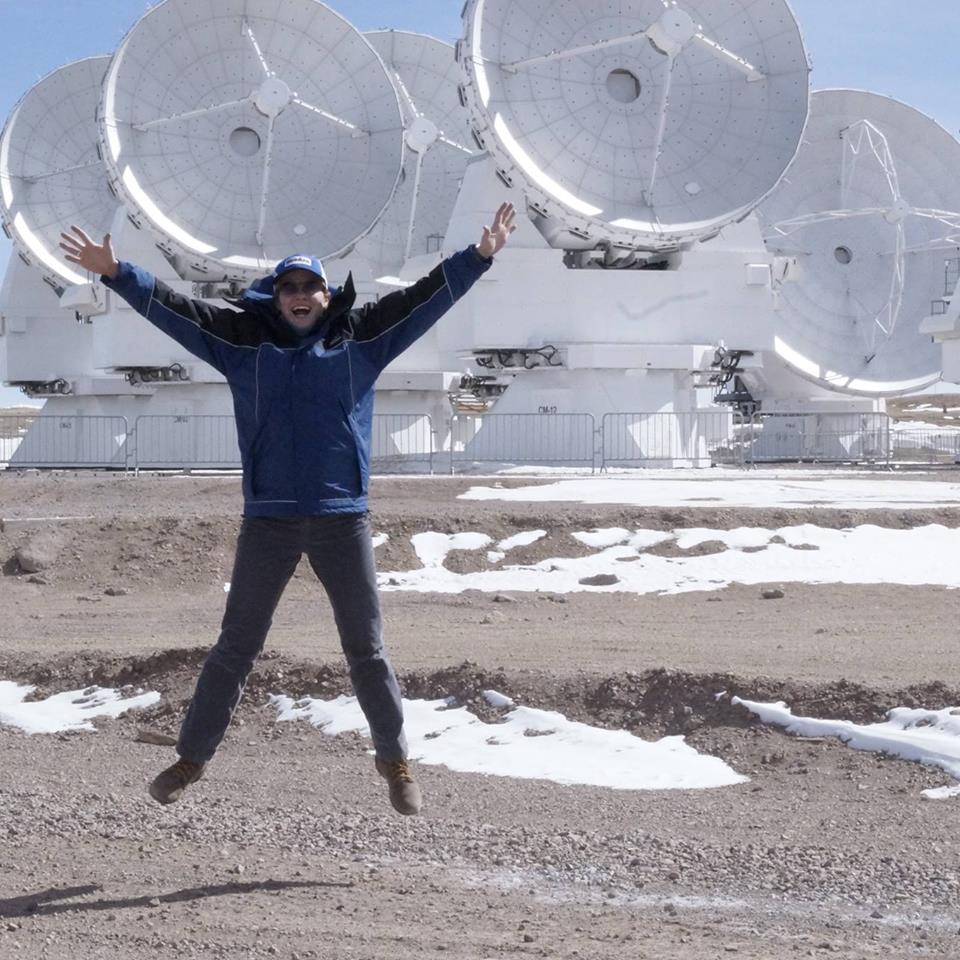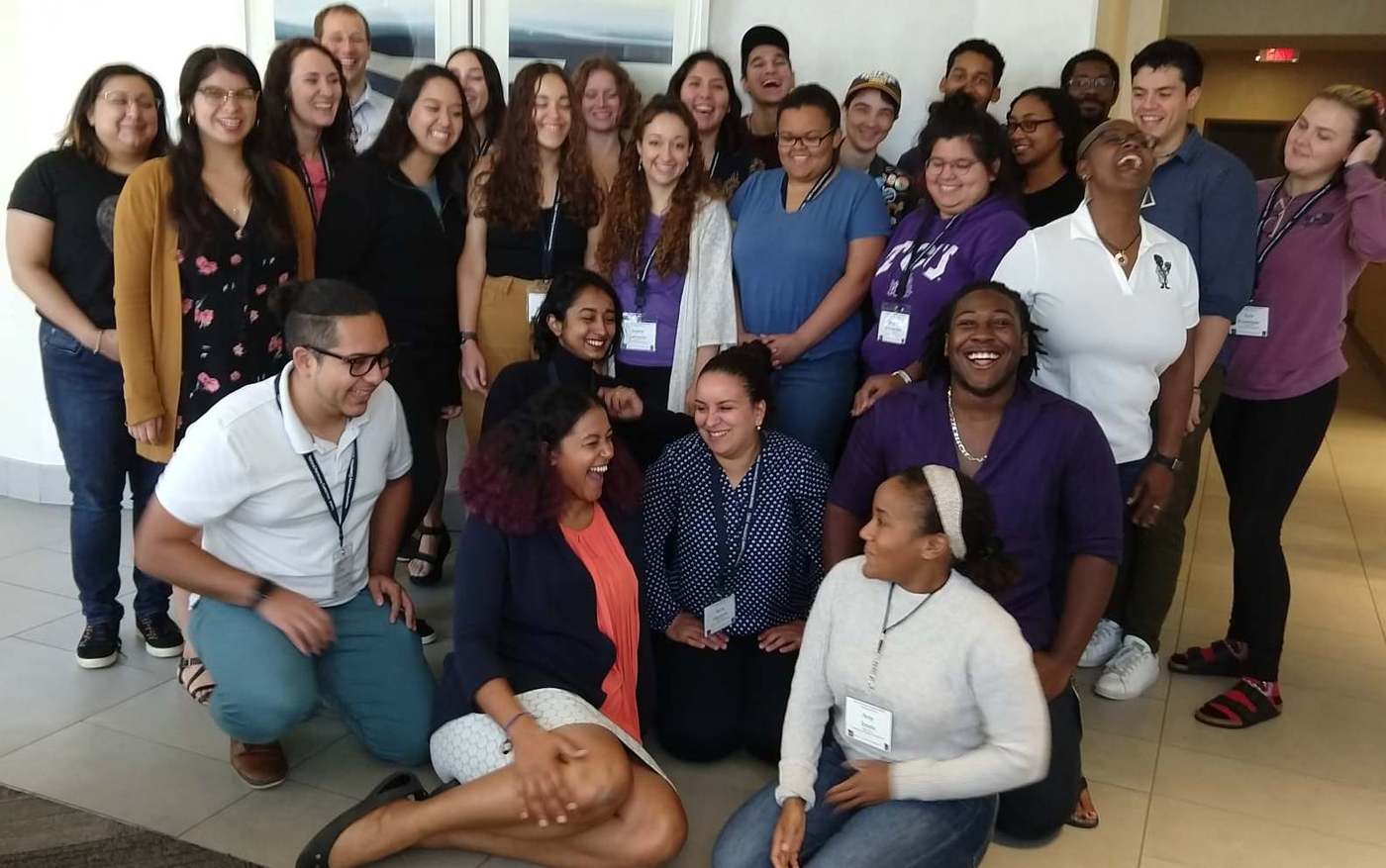Every year, we partner with Green Bank Observatory to welcome more than 30 students from around the country into one of four summer research programs. These programs typically take place at one of our sites in Charlottesville, VA, Green Bank, WV, or Socorro, NM. Students from NRAO’s National Astronomy Consortium (NAC) program visit one of our sites, or those of our partners at Space Telescope Science Institute (STScI), Princeton University, the University of Wisconsin-Madison, or Michigan State University.
This year, COVID-19 has dramatically changed the landscape in which our students and mentors will experience summer research. The NRAO and GBO made the decision, after offers were sent to students, to honor our commitments and keep the summer research programs going. Our mentors have worked hard to create a robust, meaningful experience for the students. Undaunted by the challenges a virtual environment might bring, we are expecting to see some exciting, new ways to build community and share knowledge.
Breaking new ground with virtual student research collaborations, we have considered an important question: How can we reinforce important research skills, absent the opportunity of visiting telescopes and labs, while developing an in-person student-mentor and student-student collaborative experience? Enter NRAO scientist and NAC mentor, Dr. Adele Plunkett, who anticipated these challenges — including the anxiety and stress that might ensue in a “work-from-home” status — and created an open letter with guidance for managing the summer’s challenges. The text, included below, may have some practical applications beyond our summer student research programs. Read on!
A Note to Students Conducting Summer Research (especially astronomy) Projects Remotely:
Together with professional astronomers (and really, most people) worldwide, we’re all dealing with the transition to remote work. It takes some time to adapt, and it’s not uncommon to worry about whether our productivity is the same as it was before, and whether we’re meeting expectations. Throughout the summer, we (your mentors, and program coordinators) will be sticking to this one over-arching message: amidst this unexpected situation, we’re going to do everything possible to make sure that you can succeed this summer, and have a positive experience doing so.

I’ve thought about some of the concerns I had when I transitioned to remote work in early March, and some of the concerns I could imagine myself to have had I been thrown into this situation as a summer REU student. Let’s start the dialogue, and together we’ll find a way.
(1) Work hours
We recognize that 40 hours per week at home is not the same as 40 hours of “work” when students were going to our offices at NRAO. Speaking only from my personal experience, I’ve found that some days I work very efficiently, and can get tons done in 6-8 hours. Other days, it can feel like I’m in a fog at home, or maybe I have to organize my schedule around something else that comes up, and it seems that I only get a few “good” hours of work.
You might have experienced something similar with your coursework from home, and the same could be true for research this summer. One of the important outcomes of this summer will be that you get to know yourself, finding the hours that you can work productively, and feeling fulfilled by what you can accomplish in that time. On the other hand, you’ll have to learn when to take breaks, and take care of yourself throughout.
Don’t worry about clocking hours, and don’t worry about working strictly from 8:30-5:30. Instead, prioritize regular check-ins with your mentor, so that together you can review your progress, and try to optimize your time. Also, be honest (with yourself and your mentor) about any barriers you have in terms of productivity and well-being at home, or wherever you are working from.
(2) Time zones
Also related to working hours, we will have to deal with time zones this summer. Generally this is a common challenge among astronomy collaborations. Welcome to the club! In fact, each week I have several telecons with collaborators spanning Japan, Taiwan, Europe, Chile, East coast USA, West Coast USA, and British Columbia…. We have to find times that are as convenient as possible for the most people. Within the continental US, we will only be dealing with a (max) 3 hour difference, which means we still have an overlap of normal” daytime hours between ~11:30 – 17:30 East Coast // 8:30 – 14:30 West Coast.
(3) Work space
Again, many of our colleagues have been dealing with related challenges over the last few weeks, and your professors are probably in the same situation. Not everyone has a nice, quiet space to work from productively at home. In my case, my husband and I set up a few different options in the first few weeks of working from home, which evolved by trial-and-error in subsequent weeks (we shifted one temporary desk from the living room, where there’s a nice big window, to the spare bedroom where there’s a door that can be closed, as that turned out to be more important).
There’s not necessarily an easy solution, but reflect about what worked (or didn’t) during your spring semester, and revise as often as needed when you begin your research. Just an example: Maybe you’ll find that in the mornings you prefer sitting at the breakfast table or living room for doing light work, reading papers, etc, and in the afternoons it’s better to work in a space where you can close the door and focus on a specific task. Or switch it up on alternating days of the week, and find your sweet spot. Your situation will be personal, and it may depend on your work-from-home-colleagues (i.e. parents, siblings, kids, pets, etc.); remember to be gracious and kind to all who are involved, yourself included. While it might not be as ideal as an office at your host institution, let’s do the best we can given the situation.
(4) Connectivity
We’re depending a lot on internet connection from our homes these days, and it’s a frustrating reality that sometimes the system can be overburdened. The design of your summer project might depend on your internet connectivity. Before beginning your summer research, test your system, and communicate this with your program and/or mentor. You can use any testing site; here’s one suggestion: www.speedtest.net. Make sure to use the laptop or computer that you will be using for your research, and run this test at two times: (1) peak usage (when others in the home may be working, connected to Zoom, playing games or watching movies, etc.) and (2) at a more “quiet” time.
(5) Communication
You and your advisor won’t be able to walk down the hallway, knock on the office door, and ask a quick (or not-so-quick) question. But, you should not let that keep you from communicating as needed. Email, Slack, Zoom, Skype, Google Hangouts, … There are many options, as you know.
It’s a good idea to start off the summer by discussing modes of communication with your mentor. Some topics to cover: How often should a mentor and student plan to meet (maybe a quick check-in each morning to get started; or at the end of the day to wrap up)? What is the best way to ask a quick question (probably Slack, or other chat) versus a more in-depth question (probably email)? What happens if my internet goes down, or if I need some technical help?
Actually, an important skill you learn as a student researcher is when (and to whom) to ask for help. Even when you’re in the same building, it can be hard to find the right balance between working long enough but not too long on a problem before asking for help. In the case of remote work, I’d suggest to err on the side of asking for too much help, recognizing that the response time might not be immediate (i.e. email replies might be within ~1 day; chat-like replies maybe within a few hours).
At the same time, build a connection with your student cohort. They’ll be an excellent resource for certain topics, and just fun to get to know as you work remotely “together”. Let’s be honest, your generation is better than any other previous generation at using technology to stay connected, and I have no doubt that this summer you will show us how it’s done.
In closing: by pushing to continue the “Research Experience for Undergrad” (REU) and similar programs this summer — even remotely –, we acknowledge the value of this opportunity both for the mentors and mentees, for the sake of scientific research now and in the future. We cannot pass up a single opportunity to train the next generation of scientists. And this summer we have even more lessons to learn together. We can all lament the missed in-person social and professional opportunities, but it’s quite possible that we find some ways in which remote research is just as engrossing, compelling, and formative as what we previously knew. Thanks for taking on this challenge with us.






